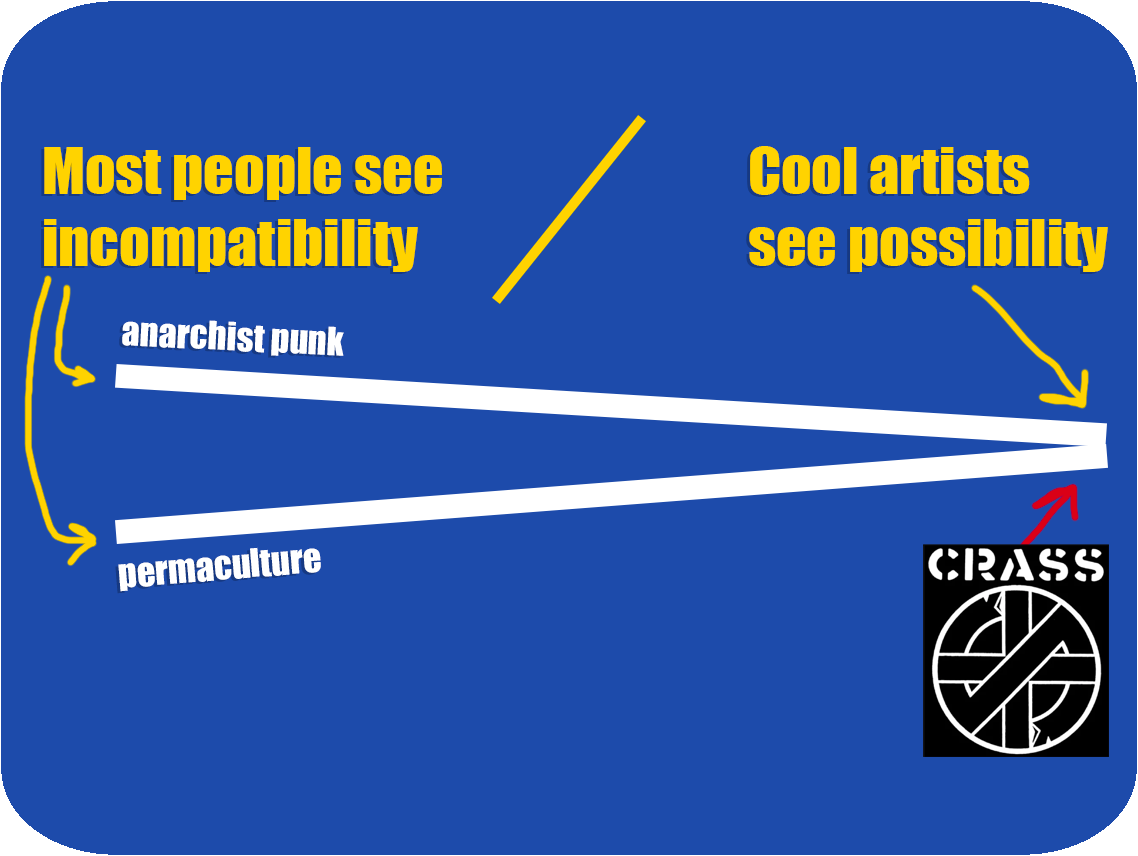Hidden Relevance: Where Seemingly Dissonant Ideas Meet
As long as I can remember, the most exciting writers I've come across have always been those that make far out, wild-eyed, unforeseeable connections between the subjects they're interested in:
- "Surveillance + Capitalism" (Shoshana Zuboff)
- "Situationism + Sufism" (Hakim Bey)
- "Anarchism + Anthropology" (David Graeber)
- "Anarchism + Poetry" (Juliana Spahr)
- "Anarchism + Christianity + Radical Queer Activism" (Mikhail Itkin)
- "Feminism + Book of Genesis" (Phyllis Tribel)
- "Christianity + Antinomianism" (Christopher Hill)
- "Mysticism + Alphabet" (David Abram)
- "Spirituality + Materialism" (Chogyam Trungpa)
- "Spirituality + Lawlessness" (Osho)
- "Rock n Roll + Marxism" (Ian Svenonius)
- "Wizards + Architecture" (Michael Reynolds)
The list goes on and on...
But, the question is, how do they get to these places? How does a writer make a seemingly dissonant connection work?
The Truth About "Out Of Left Field"
A reality, a fact, an idea, a concept, a subject—these are not stable things. They have exceptionally blurry edges. A subject may seem like a linear line extending from point A to point B, but it isn't. Put two seemingly dissonant subjects next to one another, follow their lines far enough back into the distance, the place where no one goes, and you'll see that they eventually meet up. The truth is, all subjects are pitched toward one another, even if only slightly. And, because of this, they eventually intersect. It just takes patience and a lil' ol' wrangling to get there.

The writers I have loved most, who I have found to be the most inspiring, have always been the ones who took the time and the effort (and the drugs, let's be honest), to follow two seemingly parallel lines of thought into the distance. They stuck with each subject, traveled with them into far away lands, until they caught them, sometimes out of the corner of their eye, connecting. And, it was from that place that their most insightful writing emerged.
People who write from the far away place usually exist beneath the surface of mainstream publishing. Their output shows up in small, niche publishing houses, 'zines, and on very un-hip-looking websites. Some of them live a decent, relatively social life. But, most type away in the shadows. It's a risky thing to write at the intersection of two unfriendly subjects. People call you "weird," think you're confused or "too diversified" in your interests. They say you're "stretching the truth," "making stuff up," "trying too hard." But, in the end, how many track-approved academics have written great books on spirituality? It's the weirdos. They're the ones you wanna read.
Zettelkasten As Radical Thinking Tool
The zettelkasten methodology—a bottom-up note-linking system meant to generate new insights and connections—caters toward this way of approaching subject matter. Because the process of feeding a zettelkasten is so heavily bent toward establishing connections, even when there seem to be none, the process lends itself to highly unique and wild intersections and insights.
For example, when I was reading Doughnut Economics, a book about...well, economics...I was also reading with the intention of feeding my zettelkasten. At the time I was writing mostly about social media, so whenever I would put a note about economics into my zettelkasten, I found myself making connections between it and social media. Before long, I had multiple notes speaking to how labor, wages, and social media inform one another—something I had not even remotely considered prior. It was great!

Hidden Relevance
"Hidden relevance" is the term I'm using to describe points of intersection that are not obvious at first glance. Often times, the only way to find these connections is to look at the material you're working with from a different perspective than you're used to. When considering color choices when painting a room, you might think about the "weight" of the colors rather than the hue. When designing "looks" (in a fashion sense), you might consider the feel of the fabric rather than the fit. When writing music, you might pay more attention to the timbre of a musical tone rather than the way it fits in a scale. It's in these ways that we get something like "Hare Krishna hardcore punk music," by finding commonalities below the surface.
So, if you're feeling stuck or otherwise uninspired by what you're working on, I encourage you to dig deep in order to find unsuspecting intersections buried beneath the surface. Get dirty. It builds character, and makes for great convo at parties.